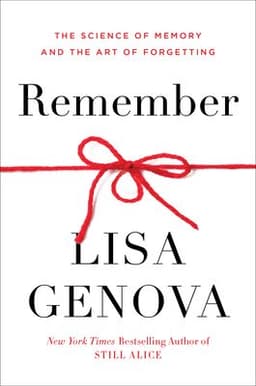
Remember by Lisa Genova - 1 Minute Summary
The Science of Memory and the Art of Forgetting
Book by Lisa Genova
Read the In-Depth 15 Minute Summary
Have you ever wondered why you can vividly recall a childhood birthday party but forget where you put your keys just minutes ago? In her captivating book "Remember", neuroscientist Lisa Genova takes us on a journey through the complex world of memory, revealing its incredible abilities, its surprising flaws, and how we can make the most of this essential human function.
Genova explains that memory is not a perfect recording of our experiences, but rather a dynamic, malleable process that involves encoding, storing, and retrieving information. Our brains constantly filter and modify our memories based on factors like attention, emotion, context, and time. This means that our memories are inherently prone to errors, distortions, and forgetting - but it also means we have the power to shape and improve them.
Throughout the book, Genova shares fascinating insights from the latest research on memory. She explores how stress, sleep, diet, exercise, and other lifestyle factors can profoundly impact our ability to learn and remember. She reveals the difference between normal age-related memory changes and the more serious deficits of Alzheimer's disease. And she offers a wealth of practical strategies to boost our memory skills, like engaging in mentally stimulating activities, staying socially connected, and using external aids like calendars and to-do lists.
But perhaps the most powerful lesson of "Remember" is that memory, for all its importance, does not define us. Genova introduces us to individuals with extraordinary memory abilities, like the man who memorized over 100,000 digits of pi, as well as those living with profound memory loss due to Alzheimer's. In both cases, she shows us that our identities, relationships, and capacity for joy and meaning transcend our ability to remember. As she writes, "You are more than what you can remember."
Ultimately, "Remember" invites us to marvel at the complexity of memory, to nurture and protect this precious resource, but also to hold it lightly. By understanding the nature of memory, we can develop a healthier, more forgiving relationship with our own minds. We can strive to make the most of our memories, while also embracing the fact that they are inherently imperfect. And we can appreciate the extraordinary gift of memory, while also recognizing that our lives are so much more than the sum of what we can recall.

